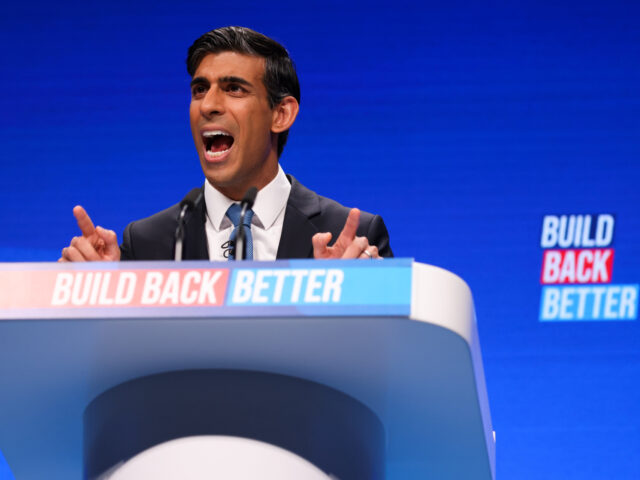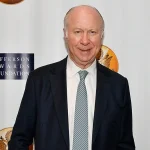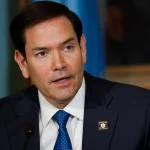
By forcing Boris Johnson out of the race for Tory leader and imposing Rishi Sunak, explicitly rejected by the party grassroots mere weeks ago, the parliamentary elite showcased their utter contempt for regular conservatives more starkly than ever.
The Prime Minister of the United Kingdom has never been directly elected, and is instead technically invited to form a government by the monarch on the basis of their being able to command a parliamentary majority — in practice, from the elected House of Commons rather than the unelected House of Lords or from outside Parliament altogether, at least since 1902 or, more arguably, 1963.
It is therefore something of a misnomer to say that prime ministers who did not lead their parties during general elections lack a democratic mandate, with their defenders often pointing out that this is not how Britain’s parliamentary system works — although in reality the idea that modern voters choose their individual MP on the basis of his or her individual merit and judgment, rather than their party affiliation and, to a great extent, that party’s leader at election time, is risible.
Most people reasonably expect that in the absence of the indirect public mandate conveyed by winning an election, prime ministerial hopefuls should at least receive the blessing of the ordinary members of the political party they hail from.
Rishi Sunak, now guaranteed to become Britain’s Prime Minister tomorrow, does not just lack a mandate from the public or party members — he has an anti-mandate, having been explicitly rejected by his party’s grassroots in a head-to-head contest with Liz Truss mere weeks ago.
Nevertheless, a parliamentary party now wearing its disdain for its own supporters more brazenly than ever is now imposing him on them and demanding “unity” around him — despite themselves forcing Boris Johnson, who would almost certainly have won a membership election against Sunak, out of the running on the basis that they would refuse to unify under him.
"Big Dog" Boris has bottled it https://t.co/3crCcInxPr
— Breitbart London (@BreitbartLondon) October 23, 2022
The gap — or rather, the yawning chasm — between Conservative politicians and Conservative members and voters is nothing new, of course.
While the parliamentary party has always contained some eurosceptic, socially conservative, and libertarian or classical liberal type MPs in favour of a smaller state, greater freedom, and lower taxes, the truth is that such people have for many years been a captive minority, dominated by leaders who favour a big state in lockstep with corporate interests that push lax immigration policy and are content with burdensome regulations that hold down smaller competitors.
On Brexit, for example, a clear majority of Tory MPs proved to be EU loyalists, with that majority becoming overwhelming among Cabinet ministers — showing how little influence the genuinely eurosceptic faction had been allowed to wield.
The fact that 61 per cent of ordinary Tory members voted Leave changed nothing — most new Tory MPs injected into the House of Commons in 2017 were once again Remainers, appearing to demonstrate that the establishment insiders controlling candidate selection were continuing to skew towards people not representative of the party’s activists and voters.
Indeed, the Remain-backing Financial Times reported that some high-profile eurosceptics, such as European Parliament member Daniel Hannan, were actively blocked by “head office”.
On mass immigration, similarly, the party elite have long since confessed — boasted, even — that their multiple election pledges to reduce the annual influx “from the hundreds of thousands to the tens of thousands” were as bogus as their professed Euroscepticism proved to be when it came to the crunch in 2016, with David Cameron’s former Chancellor, George Osborne, openly admitting in 2017 that they never intended to keep the promise in 2010 or in 2015, and urging then-prime minister Theresa May to bin it altogether.
She did not, but Boris Johnson, the supposed “British Trump”, did get rid of it for the 2019 snap election. His manifesto did at least promise in vague terms that immigration would come down “overall” — and then he increased it even more once the voting was out of the way.
Coronation: Covid-Era Tax and Spend Rishi Sunak Makes it Through Leadership Challenge Unopposed, Will be Prime Minister https://t.co/tlI9OSGrWV
— Breitbart London (@BreitbartLondon) October 24, 2022
Sunak, to his credit, actually did back Brexit in 2016 — unlike Theresa May, who like Sunak was imposed by the parliamentary party without a vote of ordinary party members in 2017, or Liz Truss, who was elected by the members but, having not been the first choice of the parliamentary elite, has found her premiership terminated within weeks of its inception.
Sunak is in almost every important respect a globalist, however, pushing increased immigration the heaviest tax burden in 70 years and running away from culture war issues — and indeed running away from confrontation with the European Union over its continued control over Northern Ireland, despite his Brexiteer past — as Chancellor of the Exchequer.
The former banker at Goldman Sachs — which was infamously described as “a great vampire squid wrapped around the face of humanity, relentlessly jamming its blood funnel into anything that smells like money” in the wake of the 2007-08 financial crisis — has also been criticised for his links to the Davos-based World Economic Forum (WEF), with its Great Reset agenda.
Most leading politicians including predecessor Liz Truss have had some association with the Klaus Schwab-led organisation, of course, but some accuse Sunak of having deeper ties to it than most, given the corporation co-founded by his billionaire Indian father-in-law N. R. Narayana Murthy is one of its listed partners.
Perhaps even more troublingly, he received the de facto endorsement of the Chinese Communist Party (CCP) during his first failed run at the premiership this year, earning praise as a “pragmatic” — read: pliable — politician in the left-totalitarian state’s mouthpiece the Global Times.
'The Free Market Experiment Is Over' – Time for a 'Reset' with Sunak as PM, Says Top Tory https://t.co/WCZhl0kMoP
— Breitbart London (@BreitbartLondon) October 22, 2022
Ultimately, however, Sunak’s personal merits and demerits are not the issue with his coronation as Tory leader and Tory premier.
Indeed, it is likely that his administration will differ little from that of Boris Johnson — a fierce foe to the EU when campaigning for office who cravenly submitted to a barely rehashed version of Theresa May’s Brexit-in-name-only in office; an ebullient proponent of shale gas and energy independence when he had no power who became a net-zero green agenda stooge when he commanded the biggest Commons majority of any Tory leader since Thatcher, and on and on.
Either, in all likelihood, would have been a better option than the only other semi-serious contender, Penny Mordaunt, a woke zealot backed by Bill Gates and Tony Blair who penned a lengthy book praising Black Lives Matter and denouncing the evils of “white privilege” and male leadership.
No, the real issue with Sunak is that, in what the mainstream media like to claim is a “populist” era, he is the epitome of elitist governance.
No one in Britain besides his own constituents voted for him. The ordinary members of his own party actively voted against him. One of the richest men in the House of Commons, he represents nothing but a few dozen MPs who do not represent their activists or voters and, increasingly, do not even pretend to, and the media moguls and money men who buy their lunch.
This is not the vaunted “parliamentary representative democracy” that alleged conservatives who couldn’t tell Edmund Burke from Edward Scissorhands claim. This is government by clique, and emblematic of what Nigel Farage rightly describes as a dead party that despises its members and, like Squealer in George Orwell’s Animal Farm, has no pitch to them beyond the threat of Farmer Jones returning in the form of the Labour Party.
This might have worked for Tory MPs, barely, in 2010, 2015, and even 2017, with 2019 arguably offering a genuinely positive pitch to the people in the form of delivering the Brexit that most of them fought against in 2016 — but how many activists will beat the streets for Prime Minister Rishi Sunak, a man they rejected once in 2022 and were not even given the opportunity to reject again before he was imposed on them from on high by MPs who worked overtime to give them the chance to vote for Boris Johnson instead?
Tory activists are used to being kicked by the MPs who are supposed to deliver a conservative agenda for them, but you can only heap so many indignities on a shrinking, ageing base over a period of well over a decade now before, finally, they say that enough is enough.
No political party has ever won five elections in a row in the United Kingdom of Great Britain and Northern Ireland, and if the Tories can manage the feat with a man who could not even win over his own party members and has nothing to offer a country hurtling towards an energy crisis and a deep recession but tax rises and spending cuts, it will be nothing short of a miracle.
Farage: Conservative Party ‘Is Now Dead’, Globalist Hunt and Labour ‘Virtually Identical’https://t.co/a2VZ0qn2es
— Breitbart London (@BreitbartLondon) October 18, 2022










